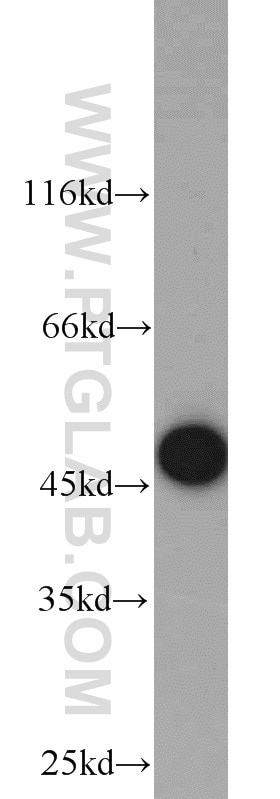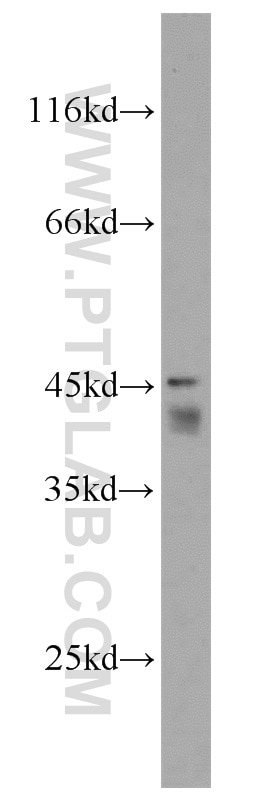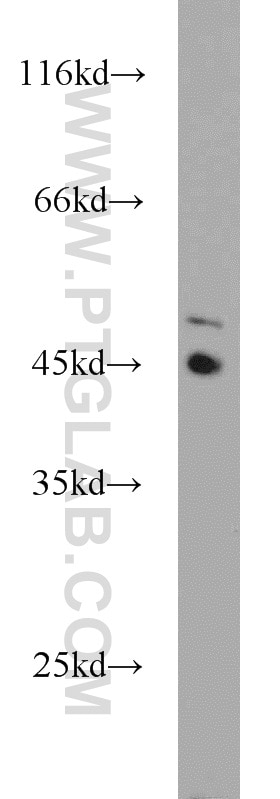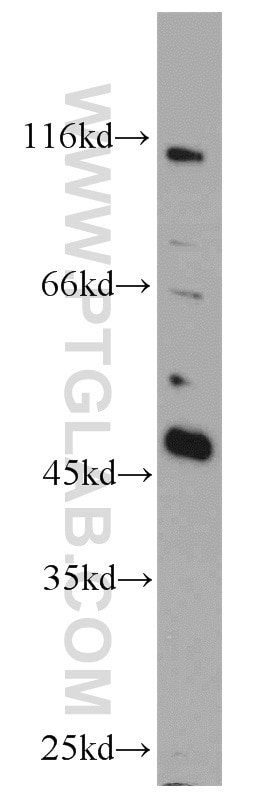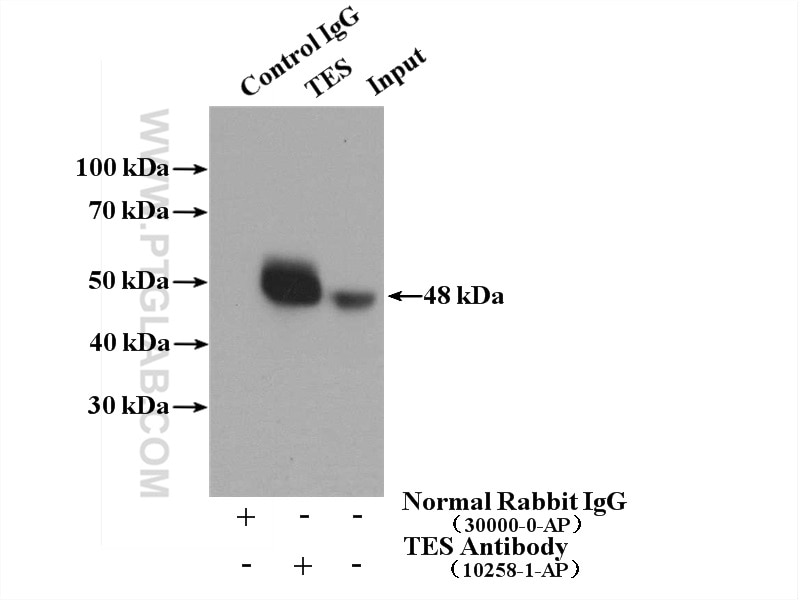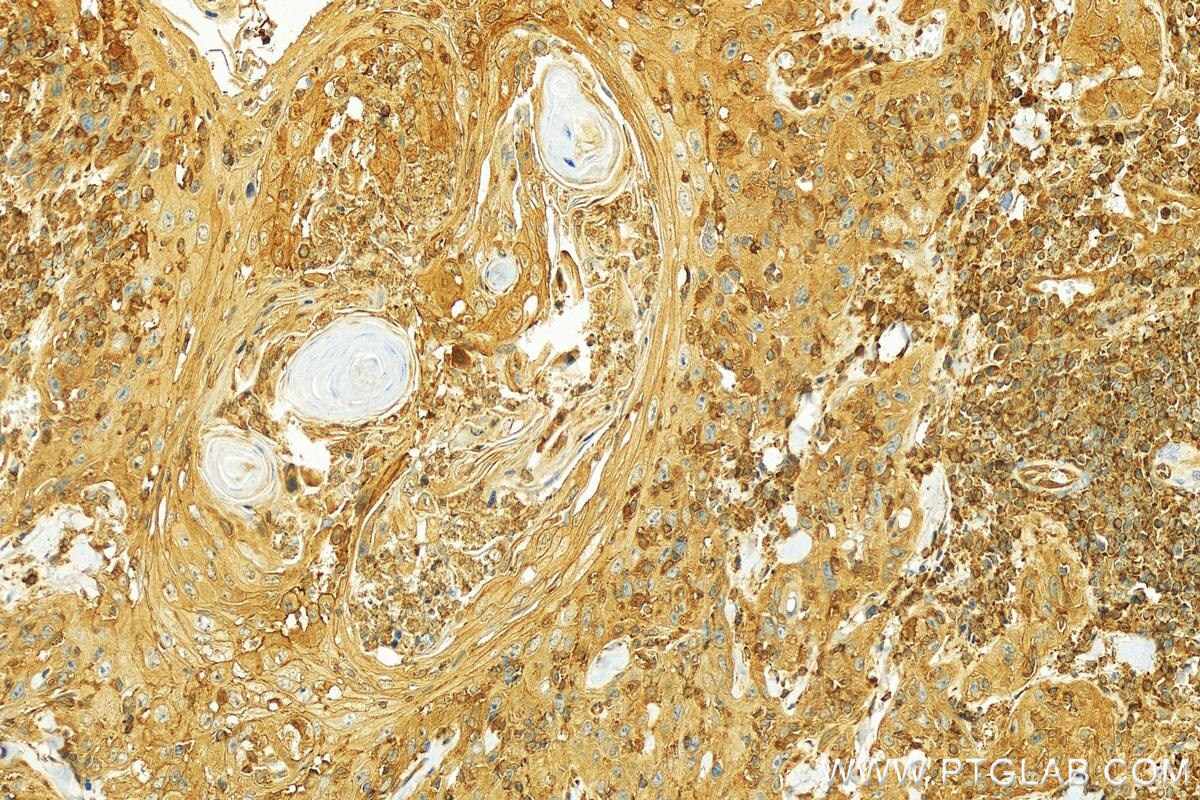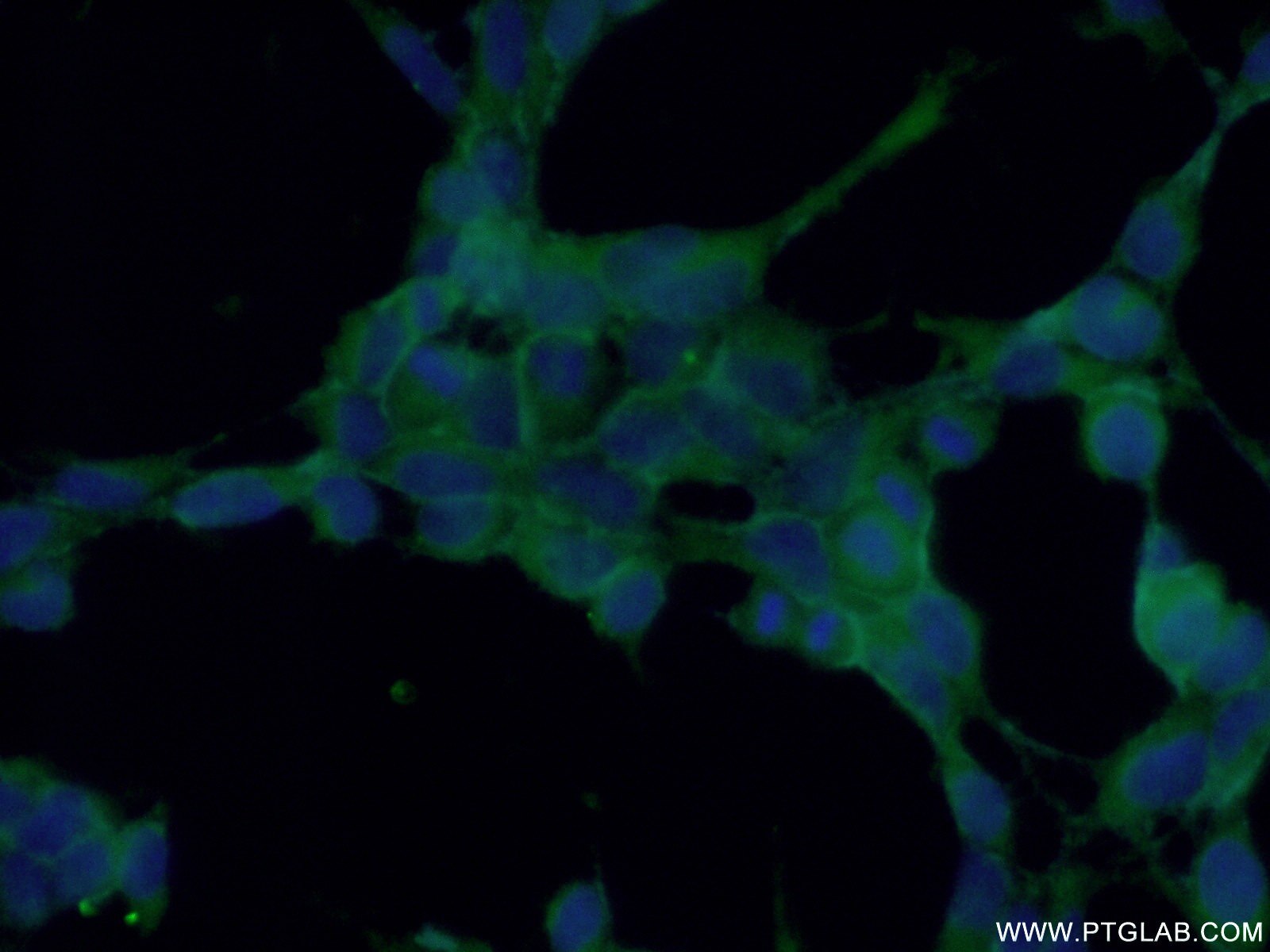Tested Applications
| Positive WB detected in | HEK-293 cells, K-562 cells, MCF-7 cells, mouse testis tissue |
| Positive IP detected in | K-562 cells |
| Positive IHC detected in | human skin cancer tissue Note: suggested antigen retrieval with TE buffer pH 9.0; (*) Alternatively, antigen retrieval may be performed with citrate buffer pH 6.0 |
| Positive IF/ICC detected in | HEK-293 cells |
Recommended dilution
| Application | Dilution |
|---|---|
| Western Blot (WB) | WB : 1:500-1:1000 |
| Immunoprecipitation (IP) | IP : 0.5-4.0 ug for 1.0-3.0 mg of total protein lysate |
| Immunohistochemistry (IHC) | IHC : 1:50-1:500 |
| Immunofluorescence (IF)/ICC | IF/ICC : 1:50-1:500 |
| It is recommended that this reagent should be titrated in each testing system to obtain optimal results. | |
| Sample-dependent, Check data in validation data gallery. | |
Published Applications
| WB | See 4 publications below |
| IHC | See 1 publications below |
Product Information
10258-1-AP targets Testin in WB, IHC, IF/ICC, IP, ELISA applications and shows reactivity with human, mouse samples.
| Tested Reactivity | human, mouse |
| Cited Reactivity | human, mouse |
| Host / Isotype | Rabbit / IgG |
| Class | Polyclonal |
| Type | Antibody |
| Immunogen | Testin fusion protein Ag0379 Predict reactive species |
| Full Name | testis derived transcript (3 LIM domains) |
| Calculated Molecular Weight | 48 kDa |
| Observed Molecular Weight | 38-48 kDa |
| GenBank Accession Number | BC001451 |
| Gene Symbol | TES |
| Gene ID (NCBI) | 26136 |
| RRID | AB_2201712 |
| Conjugate | Unconjugated |
| Form | Liquid |
| Purification Method | Antigen affinity purification |
| UNIPROT ID | Q9UGI8 |
| Storage Buffer | PBS with 0.02% sodium azide and 50% glycerol , pH 7.3 |
| Storage Conditions | Store at -20°C. Stable for one year after shipment. Aliquoting is unnecessary for -20oC storage. 20ul sizes contain 0.1% BSA. |
Background Information
Testin (TES) is a cytoskeleton-associated protein that localizes along actin stress fibers at cell-cell contact areas and at focal adhesion plaques. It interacts with a variety of cytoskeletal proteins and gets involved in regulation of cell adhesion and migration. TES is a putative tumor suppressor and reduced expression of TES has been reported in various cancers. In addition, TES is a marker for Sertoli-Germ Cell junction and is useful to monitor the disruption of intercellular junctions in the testis.
Protocols
| Product Specific Protocols | |
|---|---|
| WB protocol for Testin antibody 10258-1-AP | Download protocol |
| IHC protocol for Testin antibody 10258-1-AP | Download protocol |
| IF protocol for Testin antibody 10258-1-AP | Download protocol |
| IP protocol for Testin antibody 10258-1-AP | Download protocol |
| Standard Protocols | |
|---|---|
| Click here to view our Standard Protocols |
Publications
| Species | Application | Title |
|---|---|---|
Mol Neurobiol Exosomes Derived from Meningitic Escherichia coli-Infected Brain Microvascular Endothelial Cells Facilitate Astrocyte Activation | ||
Chem Biol Interact The JNK/P38 signaling pathway activated by Testin protects the intestinal epithelial barrier against Crohn's disease-like colitis | ||
Front Mol Biosci Development and Verification of a Hypoxic Gene Signature for Predicting Prognosis, Immune Microenvironment, and Chemosensitivity for Osteosarcoma. | ||
Biol Reprod The Aryl Hydrocarbon Receptor Is Important for Proper Seminiferous Tubule Architecture and Sperm Development in Mice. | ||
Oncol Lett Testin (TES) as a candidate tumour suppressor and prognostic marker in human astrocytoma. |
Reviews
The reviews below have been submitted by verified Proteintech customers who received an incentive for providing their feedback.
FH Joleen (Verified Customer) (06-07-2019) | The antibody works well. The first lane are cells expressing GFP-TES and the second lane is just wildtype cells. The antibody recognizes both endogenous and exogenous TES.
 |
